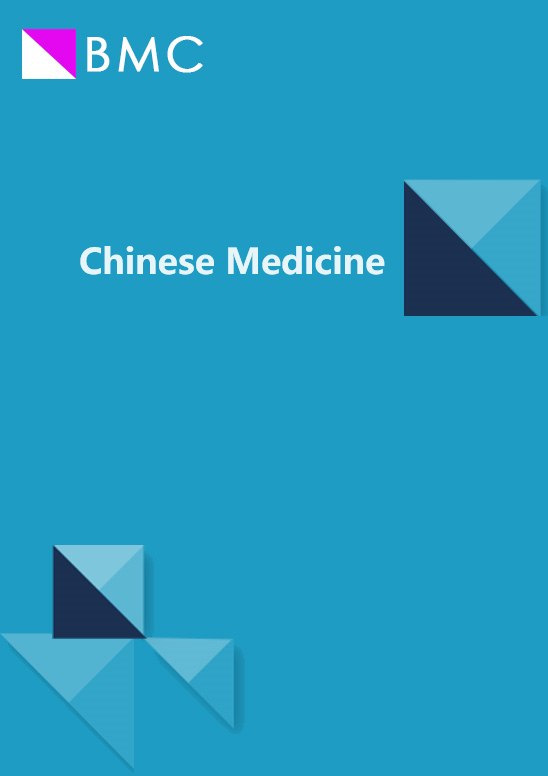复方神马景福颗粒通过 HIF-1α 介导的血管生成促进作用减轻脑缺血症状
IF 5.3
3区 医学
Q1 INTEGRATIVE & COMPLEMENTARY MEDICINE
引用次数: 0
摘要
神马景福颗粒是一种传统的中药配方,已被临床用于治疗脑循环不全。然而,其缓解脑缺血的机制尚未完全阐明。本研究采用网络药理学和转录组学的综合方法来阐明芪明颗粒的潜在机制。分子对接和表面等离子体共振(SPR)被用来识别SMJF颗粒的潜在靶点和成分。通过苏木精-伊红(H&E)和Nisslʼs染色以及三苯基氯化四氮唑(TTC)染色,确定了SMJF颗粒在大脑中动脉闭塞(MCAO)模型上的抗CI作用,并通过RT-qPCR和Western印迹验证了机制中涉及的潜在靶点。综合分析表明,SMJF颗粒干预CI损伤的机制可能与HIF-1信号通路和血管生成有关。分子对接和 SPR 分析表明,丹参酚酸 A 和柚皮苷等关键化合物与核心靶标 HIF-1α 蛋白有很强的结合作用。实验证实,SMJF 颗粒可降低神经系统评分,缩小梗死体积,减轻体内组织病理学变化。SMJF颗粒的可能机制是通过调节HIF-1通路,上调半影区血管内皮生长因子(VEGF)和血管内皮生长因子(vWF)的表达,从而显著促进血管生成。SMJF颗粒通过HIF-1α途径促进血管生成,从而缓解脑缺血损伤。此外,我们的研究结果还提供了一些证据,表明SMJF颗粒是临床上治疗CI的一种候选化合物。本文章由计算机程序翻译,如有差异,请以英文原文为准。
Compound Shenma Jingfu granule alleviates cerebral ischemia via HIF-1α-mediated promotion of angiogenesis
Shenma Jingfu Granule, a traditional Chinese medicine formula, has been used clinically for the treatment of cerebral circulation insufficiency. However, the mechanism involved in alleviating cerebral ischemia has not yet been fully elucidated. An integrated approach involving network pharmacology and transcriptomics was utilized to clarify the potential mechanisms of SMJF Granule. Molecular docking and surface plasmon resonance (SPR) were employed to identify potential targets and ingredients of SMJF Granule. The anti-CI effect of SMJF Granule was determined on the middle cerebral artery occlusion (MCAO) model by using hematoxylin–eosin (H&E) and Nisslʼs staining, as well as triphenyl tetrazolium chloride (TTC) staining, and the potential targets involved in the mechanisms were validated by RT-qPCR and western blotting. Integrated analysis revealed the mechanism of SMJF Granule intervening in CI injury might be related to the HIF-1 signaling pathway and angiogenesis. Molecular docking and SPR assays demonstrated robust binding interactions between key compounds like salvianolic acid A and naringenin with the core target HIF-1α protein. The experiment confirmed that SMJF Granule lowered neurological scores, diminished infarct volume, and alleviated histopathological changes in vivo. The possible mechanism of SMJF Granule was due to regulating HIF-1 pathway, which contributed to up-regulating expression of VEGF and vWF in the penumbral region, showing a significant promotion of angiogenesis. SMJF Granule promoted angiogenesis through HIF-1α pathway, thereby alleviating cerebral ischemia injury. In addition, our findings provide some evidence that SMJF Granule is a candidate compound for further investigation in treating CI in the clinical.
求助全文
通过发布文献求助,成功后即可免费获取论文全文。
去求助
来源期刊

Chinese Medicine
INTEGRATIVE & COMPLEMENTARY MEDICINE-PHARMACOLOGY & PHARMACY
CiteScore
7.90
自引率
4.10%
发文量
133
审稿时长
31 weeks
期刊介绍:
Chinese Medicine is an open access, online journal publishing evidence-based, scientifically justified, and ethical research into all aspects of Chinese medicine.
Areas of interest include recent advances in herbal medicine, clinical nutrition, clinical diagnosis, acupuncture, pharmaceutics, biomedical sciences, epidemiology, education, informatics, sociology, and psychology that are relevant and significant to Chinese medicine. Examples of research approaches include biomedical experimentation, high-throughput technology, clinical trials, systematic reviews, meta-analysis, sampled surveys, simulation, data curation, statistics, omics, translational medicine, and integrative methodologies.
Chinese Medicine is a credible channel to communicate unbiased scientific data, information, and knowledge in Chinese medicine among researchers, clinicians, academics, and students in Chinese medicine and other scientific disciplines of medicine.
 求助内容:
求助内容: 应助结果提醒方式:
应助结果提醒方式:


